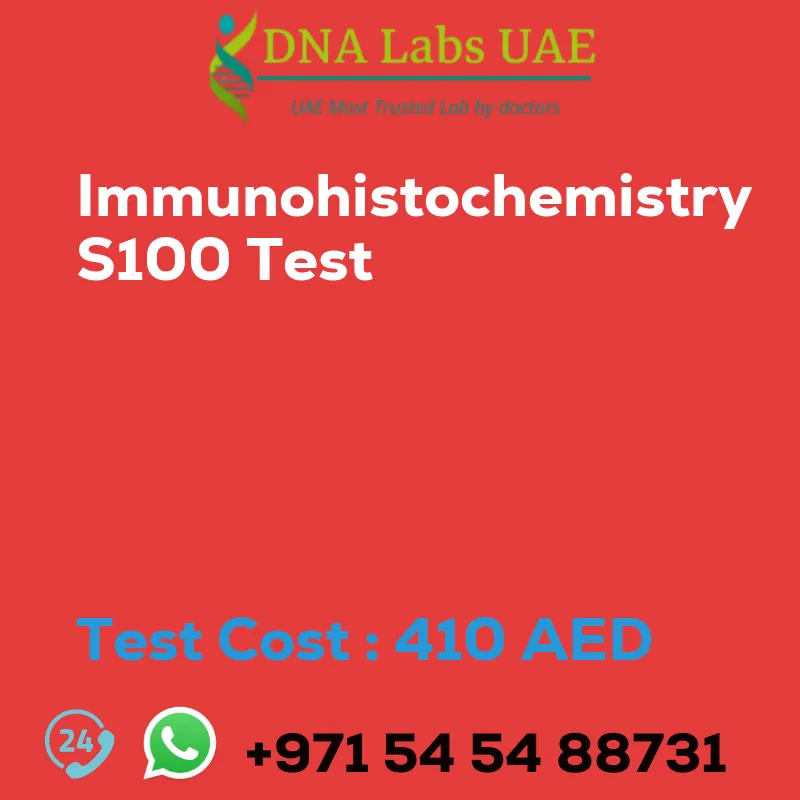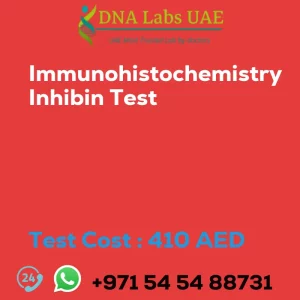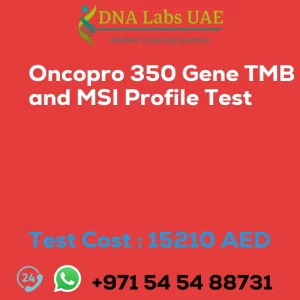IMMUNOHISTOCHEMISTRY S100 Test
At DNA Labs UAE, we offer the IMMUNOHISTOCHEMISTRY S100 Test for the detection of S100 protein in tissue samples. This test is commonly used in the field of pathology to aid in the diagnosis of various conditions, including melanoma, skin cancers, and neurological disorders.
Test Details
The S100 test is a type of immunohistochemistry (IHC) test that detects the presence of S100 protein in tissue samples. S100 protein is a group of calcium-binding proteins that play a role in cellular processes such as cell growth, differentiation, and calcium homeostasis.
To perform the S100 test, a tissue sample is collected through a biopsy or surgery. The sample is then processed into thin sections, which are placed on glass slides. Specific antibodies designed to bind to S100 protein are applied to the tissue sections. If S100 protein is present, the antibodies will bind to it, and this binding is visualized using a detection system, such as a chromogen, which produces a colored reaction product.
The stained tissue sections are examined under a microscope by a pathologist, who interprets the results based on the intensity and distribution of S100 protein staining. A positive result indicates the presence of S100 protein in the tissue sample, while a negative result indicates its absence.
Test Components and Price
The IMMUNOHISTOCHEMISTRY S100 Test is priced at 410.0 AED.
Sample Condition and Delivery
To conduct the test, submit tumor tissue in 10% Formal-saline or Formalin fixed paraffin embedded block. The sample should be shipped at room temperature. Additionally, provide a copy of the Histopathology report, site of biopsy, and clinical history.
The report delivery time for the sample is daily by 6 pm for samples, 5 days for report block, 5 days for tissue biopsy, and 7 days for tissue large complex.
Test Type and Doctor
The IMMUNOHISTOCHEMISTRY S100 Test is primarily used for cancer diagnosis. It is recommended to consult with an oncologist or pathologist for further information and guidance.
Pre Test Information
Prior to the test, it is important to provide a copy of the Histopathology report, site of biopsy, and clinical history to ensure accurate interpretation of the results.
Overall, the IMMUNOHISTOCHEMISTRY S100 Test is a valuable tool in pathology, providing important information about the presence and distribution of S100 protein in tissue samples. This aids in the diagnosis and classification of various diseases, including melanoma, skin cancers, and neurological disorders.
| Test Name | IMMUNOHISTOCHEMISTRY S100 Test |
|---|---|
| Components | |
| Price | 410.0 AED |
| Sample Condition | Submit tumor tissue in 10% Formal-saline OR Formalin fixed paraffin embedded block. Ship at room temperature. Provide a copy of the Histopathology report, Site of biopsy and Clinical history. |
| Report Delivery | Sample Daily by 6 pm; Report Block: 5 days Tissue Biopsy: 5 days Tissue large complex : 7 days |
| Method | Immunohistochemistry |
| Test type | Cancer |
| Doctor | Oncologist, Pathologist |
| Test Department: | |
| Pre Test Information | Provide a copy of the Histopathology report, Site of biopsy and Clinical history. |
| Test Details |
The S100 test is a commonly used immunohistochemistry (IHC) test that detects the presence of S100 protein in tissue samples. S100 protein is a group of calcium-binding proteins that are involved in various cellular processes, including cell growth, differentiation, and calcium homeostasis. The S100 test is primarily used in the field of pathology to aid in the diagnosis of certain conditions, such as melanoma and other skin cancers, as well as certain neurological disorders. It is particularly useful in distinguishing between benign and malignant tumors and in identifying the origin of metastatic tumors. To perform the S100 test, a tissue sample is collected through a biopsy or surgery and processed into thin sections. These sections are then placed on glass slides and treated with specific antibodies that are designed to bind to S100 protein. If S100 protein is present in the tissue sample, the antibodies will bind to it, and this binding is visualized using a detection system, such as a chromogen, which produces a colored reaction product. The stained tissue sections are then examined under a microscope by a pathologist, who will interpret the results based on the intensity and distribution of S100 protein staining. A positive S100 test result indicates the presence of S100 protein in the tissue sample, while a negative result indicates its absence. Overall, the S100 test is a valuable tool in the field of pathology, as it provides important information about the presence and distribution of S100 protein in tissue samples, aiding in the diagnosis and classification of various diseases. |







